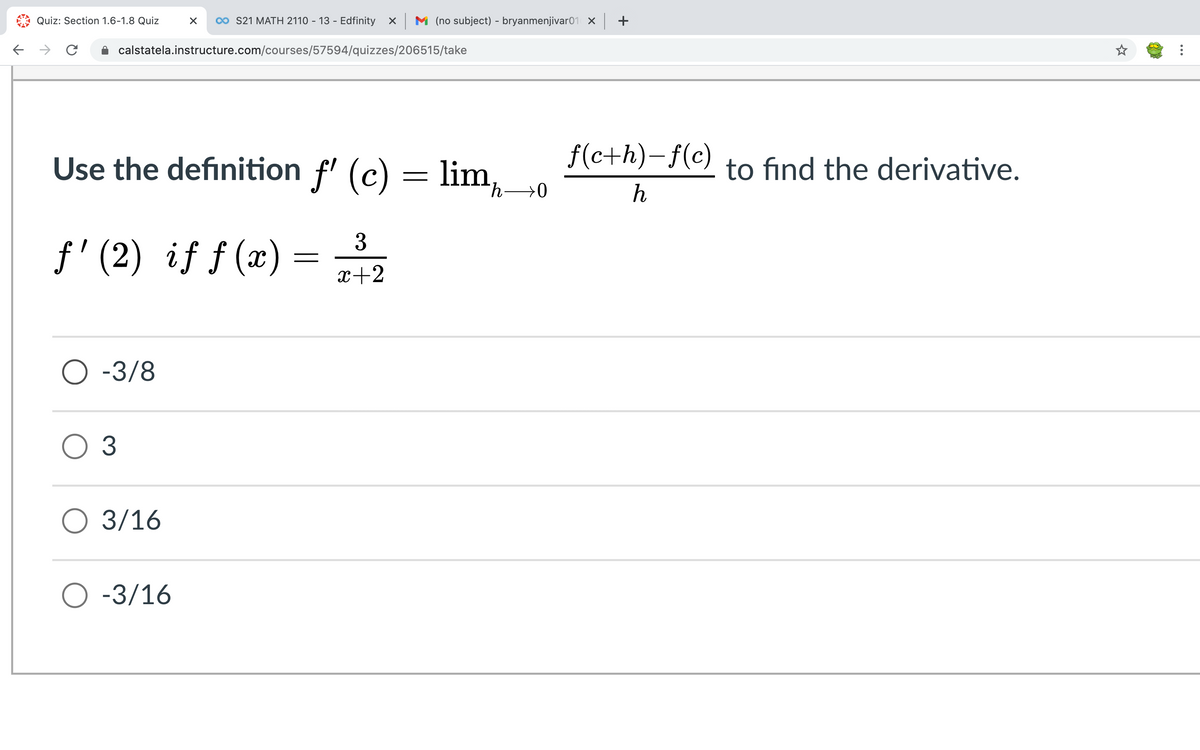Linear Algebra: A Modern Introduction
4th Edition
ISBN:9781285463247
Author:David Poole
Publisher:David Poole
Chapter6: Vector Spaces
Section6.5: The Kernel And Range Of A Linear Transformation
Problem 30EQ
Related questions
Topic Video
Question

Transcribed Image Text:Quiz: Section 1.6-1.8 Quiz
0o S21 MATH 2110 - 13 - Edfinity x M (no subject) - bryanmenjivar01 X +
calstatela.instructure.com/courses/57594/quizzes/206515/take
Use the definition f' (c) = lim,0
f(c+h)-f(c)
to find the derivative.
h→0
h
3
f' (2) if ƒ (x)
x+2
O -3/8
O 3
O 3/16
O -3/16
Expert Solution
This question has been solved!
Explore an expertly crafted, step-by-step solution for a thorough understanding of key concepts.
Step by step
Solved in 2 steps

Knowledge Booster
Learn more about
Need a deep-dive on the concept behind this application? Look no further. Learn more about this topic, calculus and related others by exploring similar questions and additional content below.Recommended textbooks for you

Linear Algebra: A Modern Introduction
Algebra
ISBN:
9781285463247
Author:
David Poole
Publisher:
Cengage Learning

Algebra & Trigonometry with Analytic Geometry
Algebra
ISBN:
9781133382119
Author:
Swokowski
Publisher:
Cengage

Linear Algebra: A Modern Introduction
Algebra
ISBN:
9781285463247
Author:
David Poole
Publisher:
Cengage Learning

Algebra & Trigonometry with Analytic Geometry
Algebra
ISBN:
9781133382119
Author:
Swokowski
Publisher:
Cengage